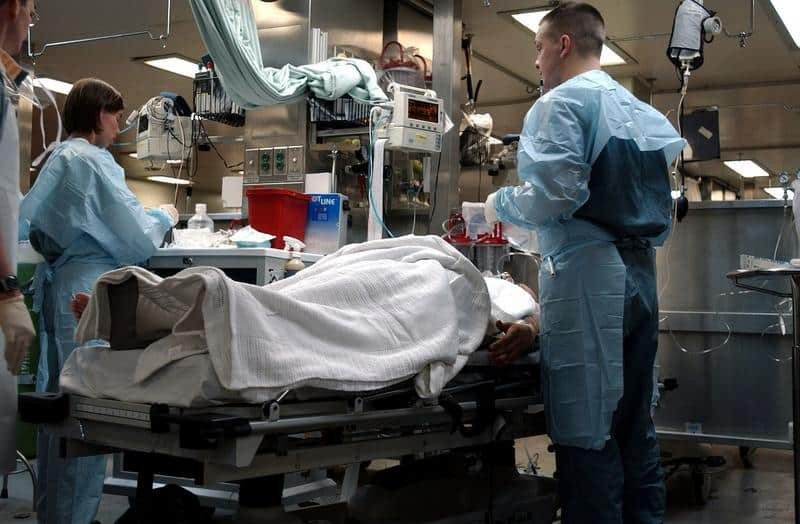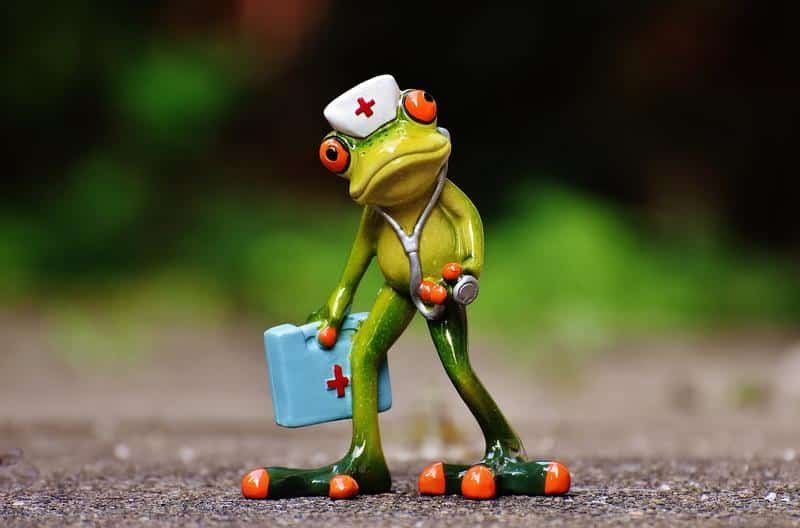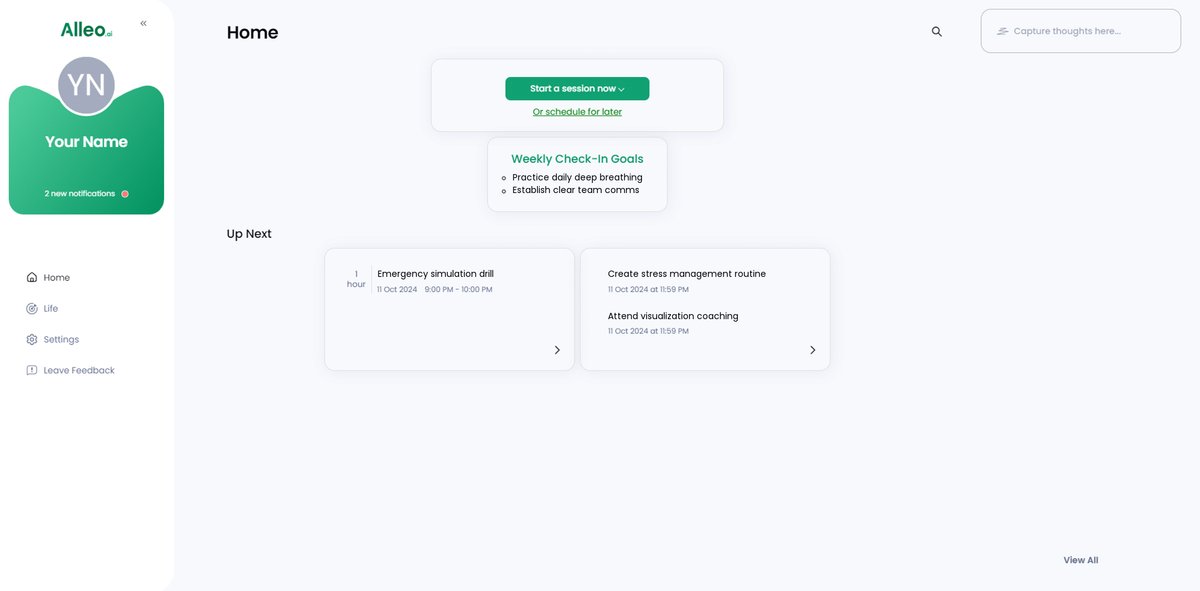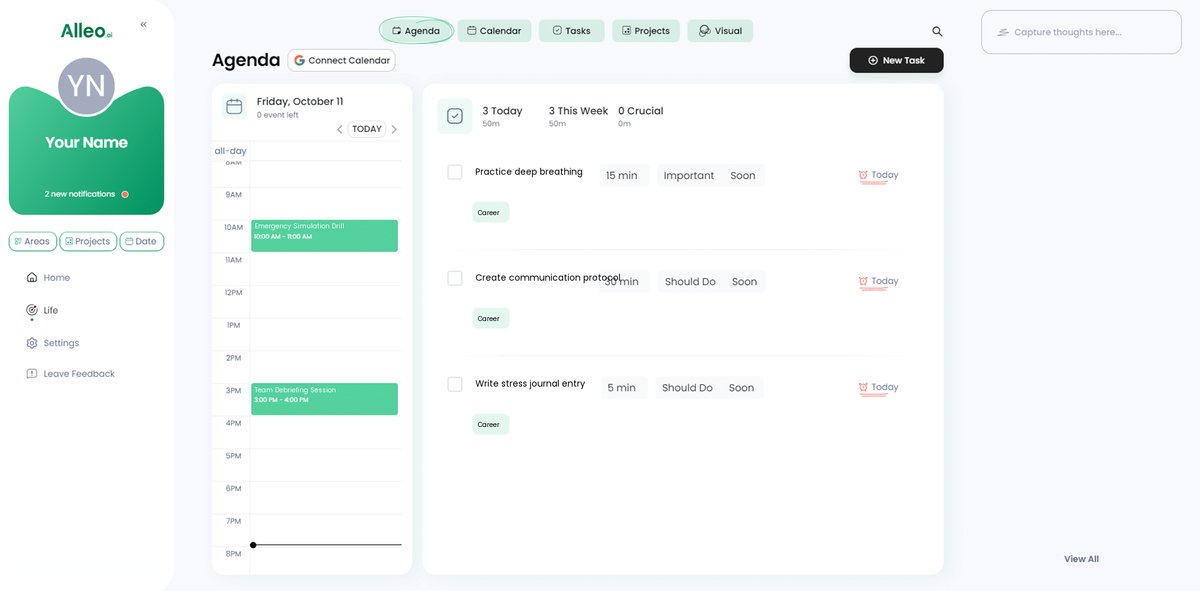7 Powerful Strategies for Nurses to Stay Calm in High-Stress Medical Emergencies
Have you ever found yourself in the middle of a medical emergency, heart racing, struggling to stay calm in medical emergencies? As a healthcare professional, mastering critical care coping mechanisms is crucial.
As a life coach specializing in nurse resilience training, I understand the immense pressure healthcare professionals face during high-stress situations. I’ve guided many nurses through these challenges, focusing on emergency nursing techniques and stress management for healthcare professionals.
In this article, you’ll learn strategies for staying calm in medical emergencies while maintaining tranquility and professionalism. We’ll cover deep breathing, clear communication, and more, including mindfulness for emergency medical staff and emotional regulation in healthcare.
Let’s dive into these calm under pressure nursing strategies and medical crisis response skills.

The Reality of Stress in Nursing
Every day, nurses face high-stress environments that can take a significant emotional toll. Many clients initially struggle with feelings of burnout and overwhelming pressure, making staying calm in medical emergencies a crucial skill for healthcare professionals.
The statistics are alarming. Nearly half of all nurses report moderate to high levels of stress, which can lead to serious consequences if not managed effectively (source). This highlights the importance of stress management for healthcare professionals and nurse burnout prevention.
In my experience, people often find it hard to balance the demands of their work with their personal well-being. This challenge is particularly acute during high-pressure medical situations, emphasizing the need for critical care coping mechanisms and emotional regulation in healthcare.
You might feel like you’re constantly on edge, which is exhausting and unsustainable. But there are ways to manage this stress effectively, such as developing calm under pressure nursing strategies and exploring mindfulness for emergency medical staff.

Key Steps to Stay Calm in High-Stress Medical Emergencies
Overcoming this challenge requires a few key steps. Here are the main areas to focus on to make progress in staying calm in medical emergencies.
- Practice deep breathing and grounding techniques: Implement daily deep breathing exercises and grounding techniques during crises to enhance emotional regulation in healthcare.
- Establish clear communication protocols: Create standardized communication protocols and conduct training sessions to improve medical crisis response skills.
- Conduct regular emergency simulation drills: Schedule monthly drills and evaluate team performance to refine emergency nursing techniques.
- Develop a personal stress management routine: Establish a routine including exercise, healthy eating, and adequate sleep for effective stress management for healthcare professionals.
- Foster a supportive team environment: Encourage open communication and organize team-building activities to promote nurse resilience training.
- Use visualization to prepare for emergencies: Practice visualization techniques and attend coaching sessions to enhance calm under pressure nursing strategies.
- Implement post-incident debriefing sessions: Hold debriefing sessions and document lessons learned to improve high-pressure medical situation handling.
Let’s dive in!
1: Practice deep breathing and grounding techniques
Deep breathing and grounding techniques are essential for staying calm in medical emergencies and maintaining composure during high-stress situations.
Actionable Steps:
- Practice deep breathing daily for 5-10 minutes to build a calm reflex, enhancing your emergency nursing techniques.
- Use grounding techniques like focusing on physical sensations to stay present during medical crises.
- Attend a mindfulness workshop to learn additional stress management for healthcare professionals.
Explanation: These steps help you remain calm and focused, which is crucial in high-pressure medical situations.
Regular practice of these techniques can significantly reduce stress levels and improve overall well-being, contributing to nurse resilience training. For more information on stress management techniques, visit this resource.
Key benefits of deep breathing and grounding techniques for staying calm in medical emergencies include:
- Reduced anxiety and stress, aiding in nurse burnout prevention
- Improved focus and decision-making in critical care scenarios
- Enhanced emotional regulation in healthcare settings
Starting with these steps will help you build a foundation for staying calm under pressure and develop effective medical crisis response skills.

2: Establish clear communication protocols
Clear communication is critical in high-stress medical emergencies to ensure everyone is on the same page and for staying calm in medical emergencies.
Actionable Steps:
- Create standardized protocols for communication during emergencies, such as using closed-loop communication, which is essential for emergency nursing techniques.
- Conduct regular training sessions to ensure all team members are familiar with and can execute these protocols effectively, enhancing medical crisis response skills.
- Utilize role-playing exercises to practice clear and calm communication under pressure, improving nurse resilience training.
Explanation: Establishing clear communication protocols helps reduce misunderstandings and enhances team coordination during crises. This is vital for delivering effective patient care and maintaining a calm environment, which is crucial for stress management for healthcare professionals.
For more on effective communication techniques, see this resource.
Building strong communication habits can significantly improve your team’s performance in high-pressure medical situation handling.

3: Conduct regular emergency simulation drills
Regular emergency simulation drills are crucial for preparing nurses for high-stress medical situations and staying calm in medical emergencies.
Actionable Steps:
- Schedule monthly simulation drills that reflect common high-stress scenarios in your healthcare setting, focusing on emergency nursing techniques.
- Evaluate team performance after each drill and provide constructive feedback to improve future responses and enhance nurse resilience training.
- Use realistic scenarios to ensure drills are as close to real-life situations as possible, simulating high-pressure medical situation handling.
Explanation: Regular drills help you and your team stay prepared and calm during actual emergencies, improving medical crisis response skills.
These simulations improve response times and ensure everyone knows their role, enhancing overall patient care and promoting stress management for healthcare professionals.
For more on effective emergency preparedness, visit this resource.
Practicing these drills ensures that you are ready for any high-stress situation, reinforcing calm under pressure nursing strategies.

4: Develop a personal stress management routine
Creating a personal stress management routine is vital for staying calm in medical emergencies and maintaining emotional resilience in high-stress medical environments.
Actionable Steps:
- Incorporate regular exercise into your routine to boost physical and mental health, enhancing your ability to handle high-pressure medical situations. Aim for at least 30 minutes daily.
- Prioritize healthy eating by planning balanced meals that include fruits, vegetables, and lean proteins, supporting your nurse resilience training.
- Ensure adequate sleep by establishing a consistent sleep schedule and optimizing your sleep environment, crucial for emergency nursing techniques.
Explanation: These steps help maintain your overall well-being, reduce stress, and enhance your critical care coping mechanisms. For more on managing stress through healthy lifestyle choices, visit this resource.
Sticking to a routine ensures you are better equipped to face the daily challenges of nursing and stay calm in medical emergencies.

5: Foster a supportive team environment
Building a supportive team environment is crucial for nurses to manage stress and maintain emotional resilience, especially when staying calm in medical emergencies.
Actionable Steps:
- Encourage open communication by creating regular opportunities for team members to share concerns and support each other, enhancing critical care coping mechanisms.
- Organize team-building activities to strengthen relationships and foster a sense of community within the team, promoting nurse resilience training.
- Implement a peer support program where team members can provide emotional and professional support to one another, aiding in nurse burnout prevention.
Explanation: These steps help create a positive and supportive work environment, which is essential for reducing stress and improving job satisfaction. A strong support system can enhance problem-solving abilities and emotional resilience, crucial for staying calm in medical emergencies.
For more on fostering a supportive team environment, visit this resource.
Key elements of a supportive team environment include:
- Trust and mutual respect
- Open and honest communication
- Shared goals and values
Having a supportive team can make all the difference in high-pressure medical situations, helping you stay composed and effective while applying emergency nursing techniques.

6: Use visualization to prepare for emergencies
Using visualization to prepare for emergencies helps nurses stay calm in medical emergencies and maintain focus during high-stress situations.
Actionable Steps:
- Practice mental rehearsal by visualizing yourself handling emergency nursing techniques with composure and efficiency.
- Attend a coaching session on visualization techniques to enhance your mental preparedness and develop critical care coping mechanisms.
- Incorporate visualization into your daily routine to build confidence and reduce anxiety over time, contributing to nurse resilience training.
Explanation: These steps are essential because visualization helps you mentally prepare for real-life emergencies, making them less intimidating and improving your medical crisis response skills.
This practice builds confidence and improves your response under pressure, enhancing your ability to stay calm in medical emergencies.
For more on mental preparation, visit this resource.
Visualization techniques are a powerful tool to enhance your readiness for any crisis, supporting emotional regulation in healthcare and serving as a strategy for nurse burnout prevention.

7: Implement post-incident debriefing sessions
Post-incident debriefing sessions are crucial for reflecting on high-stress events and improving future responses, contributing to staying calm in medical emergencies.
Actionable Steps:
- Hold debriefing sessions immediately after high-stress incidents to discuss what went well and areas for improvement in emergency nursing techniques.
- Use these sessions to provide emotional support and address any concerns or stress reactions experienced by team members, promoting stress management for healthcare professionals.
- Document lessons learned and incorporate them into future training and protocols to enhance team preparedness and critical care coping mechanisms.
Explanation: These steps are vital because they ensure continuous improvement and provide emotional support to your team. Debriefing helps identify strengths and weaknesses, fostering a culture of learning and resilience, essential for staying calm in medical emergencies.
For more on the importance of debriefing and emotional support, visit this resource.
Benefits of effective post-incident debriefing include:
- Improved team performance in high-pressure medical situations
- Enhanced emotional processing and regulation in healthcare
- Continuous learning and adaptation of medical crisis response skills
Implementing these sessions can significantly improve team performance and emotional well-being, contributing to nurse resilience training and burnout prevention.

Partner with Alleo to Manage Stress in Medical Emergencies
We’ve discussed strategies for staying calm in medical emergencies. But did you know you can work with Alleo to make this journey easier and faster for emergency nursing techniques?
Alleo, an AI life coach, provides tailored support for nurses facing these challenges, offering nurse resilience training and critical care coping mechanisms.
First, sign up for a free 14-day trial—no credit card needed. Next, set up your personalized stress management plan for healthcare professionals.
Alleo’s coach will guide you through deep breathing exercises, communication protocols, and more to enhance your medical crisis response skills. You’ll receive regular follow-ups, progress tracking, and accountability reminders to help with nurse burnout prevention.
Ready to get started for free? Let me show you how to improve your calm under pressure nursing strategies!
Step 1: Log In or Create Your Account
To begin your journey towards stress management in medical emergencies, log in to your existing Alleo account or create a new one to access personalized coaching and support.

Step 2: Choose “Building better habits and routines”
Select “Building better habits and routines” to develop a personalized stress management plan that will help you stay calm during medical emergencies and improve your overall well-being as a healthcare professional.

Step 3: Select “Career” as Your Focus Area
Choose “Career” as your focus area in Alleo to address the challenges of staying calm during medical emergencies. This selection will provide tailored strategies and exercises specifically designed to enhance your professional resilience and stress management skills in high-pressure healthcare environments.

Step 4: Starting a coaching session
Begin your journey with Alleo by scheduling an initial intake session, where you’ll discuss your stress management goals and develop a personalized plan to help you stay calm during medical emergencies.

Step 5: Viewing and managing goals after the session
After your coaching session on staying calm during medical emergencies, check the Alleo app’s home page to review and manage the stress-reduction goals you discussed, helping you track your progress in developing emotional resilience.

Step 6: Adding events to your calendar or app
Use the calendar and task features in the Alleo app to schedule and track your stress management activities, such as deep breathing exercises, debriefing sessions, and team-building events, helping you stay organized and accountable in your journey to maintain calm during medical emergencies.

Final Thoughts: Staying Calm in Medical Emergencies
As we wrap up, remember that staying calm in medical emergencies is a skill you can develop. It takes practice and dedication, much like other emergency nursing techniques.
The strategies we’ve explored, from deep breathing to clear communication, are tools you can use right away. They will help you build emotional resilience and enhance your critical care coping mechanisms.
I know it’s not always easy. You face immense pressure daily in high-pressure medical situations.
But you can do this.
By implementing these techniques, you can manage stress more effectively and improve patient care. These stress management skills for healthcare professionals are crucial for nurse burnout prevention.
Don’t forget, Alleo is here to support you. Our AI life coach can guide you through these steps, helping you stay calm and focused during medical emergencies.
Try Alleo for free today. You’ll be glad you did.